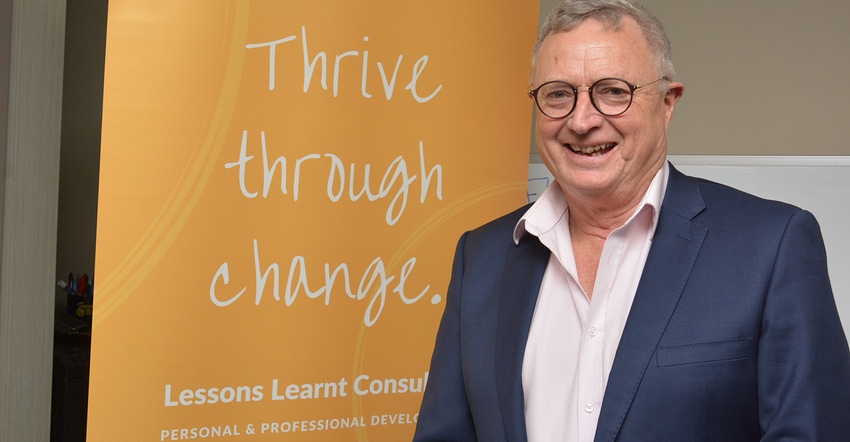
Resilience, in general, is defined as the ability to bounce back from adversity.
Farmers typically have a healthy dose of resilience, given their occupation. However, the last several years of low prices for farm products has been particularly wearing and depressing.
What can you do when you don’t feel like your old self?
Dennis Hoiberg, an organizational consultant with Lessons Learnt Consulting, based in Australia, has been visiting this month with various Minnesota agencies and farm organizations to offer insight on reclaiming optimism and remaining resilient in the face of change.
“Resilience is not about being tough, it’s about being whole,” Hoiberg said. “We’ve got to get past ‘Tough it out’… and it’s more than just happy thoughts. It’s about action you’ve got to take.”
At a Dec. 4 meeting, held at the Minnesota Farmers Union office in St. Paul for those on the front lines of helping farmers, Hoiberg offered the following self-help tips to build resilience muscle, woven around the word “hope,” which he used as an acronym:
healthy habits
optimistic thinking
planning
enact
An important fundamental of resiliency is developing the habit of getting a good night’s sleep, he said. Maintain a routine for getting ready for bed: establish a regular bedtime and waking time; avoid alcohol, caffeine and smoking prior to bedtime; finish eating and exercising three hours prior to bedtime; and turn off the electronics at least 45 minutes before going to bed.
“Your bedroom should be dark, cool, quiet and comfortable,” Hoiberg said. “Use your bedroom only for sex and sleep.”
If you have had difficulty sleeping for more than two weeks, he suggests seeing your doctor.
Begin with inner voice
Optimistic thinking starts with that inner voice we have. What does yours sound like? Do you hear “It will never happen” (negative), “it could happen” (realistic) or “it will happen” (positive)?
“Our goal is to have purposeful optimism versus positive thinking,” Hoiberg said. “Purposeful thinking leads to optimistic thinking. Optimists are more likely to be innovators, live longer, be in better health and eat healthier.”
If you are hearing a negative or realistic inner voice, could those thoughts be reframed into ones that are optimistic?
“The inner voice is really powerful,” Hoiberg added. “We’ve got to get it right.”
He cautioned against listening to an out-of-control inner voice that is driven by the “tyranny of shoulds”—you should do this, you shouldn’t have done that. Instead, challenge those inner voices with activity, beliefs, consequences and disputation.
In planning, Hoiberg said he believes a farmer’s more important skill is time management.
“You miss a day, you miss a season,” he noted. Thus, write down your plan.
“A goal without a plan is just a wish,” he added.
And regarding the last step in exercising resilience, Hoiberg said it is the most important and the most difficult.
“You need to enact. … You are what you do, not what you say you will do,” he said. “It is the biggest challenge for us — to do.”
To get moving, break your goal down into smaller steps. Focus on the controllable. Keep moving and don’t look back, he said.
In conclusion, Hoiberg offered these parting thoughts:
• Learn to look after yourself. You cannot pour from an empty cup.
• Be whole in your emotions and feelings.
• Develop a gratitude attitude.
• Know and honor your “why.” Why do you do what you do? If you lose your “why,” it may be time to seek advice or help.
• Work with your family and your employees.
• Surround yourself with great people. Get yourself good voices.
• Stay engaged. Learn to say yes.
• Focus on habits and rituals.
• Manage your physical environment. You can’t manage the storm, but you can manage how you react.
• Set realistic expectations.
• Don’t compare.
• Don’t overthink. Do.
For more information about Hoiberg, visit lessonslearntconsulting.com.
About the Author(s)
You May Also Like






